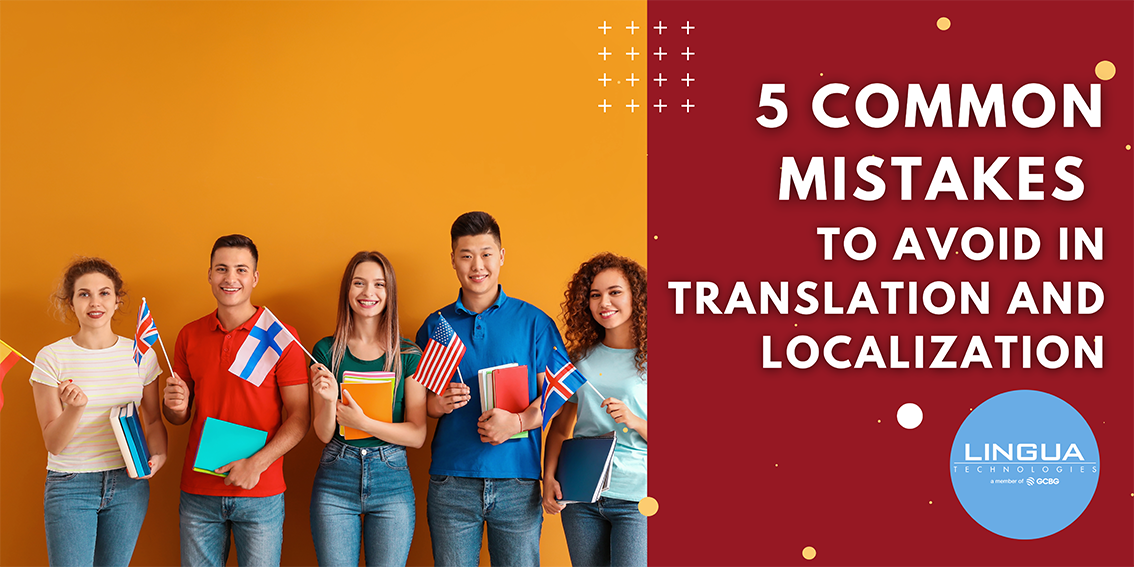In today's globalized world, translation and localization are crucial in reaching diverse audiences and expanding businesses internationally. However, ensuring accurate and effective translation and localization can be challenging. Mistakes in this process can hinder communication and damage a brand's reputation. To help you navigate the complexities of translation and localization, we have compiled a list of five common mistakes to avoid.
Neglecting Cultural Context
One of the most critical aspects of translation and localization is considering the cultural context of the target audience. Translating words without understanding cultural nuances can lead to misinterpretations and even offensive content. It's essential to employ native-speaking translators or localization specialists who have a deep understanding of the target culture. They can adapt the content appropriately, ensuring that it resonates with the intended audience while maintaining cultural sensitivity.
Overlooking Localization Testing
Localization goes beyond mere translation. It involves adapting content to the local market, which includes factors such as currency, units of measurement, date and time formats, and legal requirements. One common mistake is failing to conduct thorough localization testing. This step helps identify any inconsistencies, technical issues, or layout problems that might arise due to language-specific variations. Proper testing ensures a seamless user experience and prevents any potential misunderstandings or inconveniences.
Using Machine Translation Exclusively
Machine translation tools have made significant advancements in recent years. While they can be useful for basic translations or quick understanding, relying solely on machine translation can be risky. Machines lack the ability to grasp subtle language nuances, cultural references, or context-specific meanings. Human translators bring expertise, cultural understanding, and creativity to the translation process, ensuring accuracy and natural-sounding content. For high-stakes or complex projects, professional human translation is indispensable.
Ignoring Brand Voice and Tone:
Consistency is key to building a strong brand identity and establishing trust with your audience. When translating or localizing content, it's crucial to maintain the brand's voice and tone across different languages. It's essential to provide translators with brand guidelines, style guides, and glossaries to ensure they understand the desired tone and accurately convey the brand's personality in the target language. Collaborating closely with translators and providing clear instructions will help avoid any inconsistencies or misinterpretations.
Underestimating the Importance of Localization
Translation and localization are often used interchangeably, but they have distinct purposes. While translation focuses on converting text from one language to another, localization encompasses adapting content to suit a specific locale. This includes language translation, cultural adaptation, design adjustments, and adherence to local regulations. Underestimating the importance of localization can result in content that feels foreign or inappropriate for the target audience. Taking the time and effort to tailor content to local preferences and customs can greatly enhance the impact of your message.
In conclusion, successful translation and localization require careful attention to detail, cultural understanding, and collaboration between translators and clients. By avoiding these common mistakes - neglecting cultural context, overlooking localization testing, relying exclusively on machine translation, ignoring brand voice and tone, and underestimating the importance of localization - you can ensure accurate, culturally sensitive, and impactful communication with your global audience. Remember, investing in quality translation and localization will help you expand your business and build a strong reputation in international markets.

